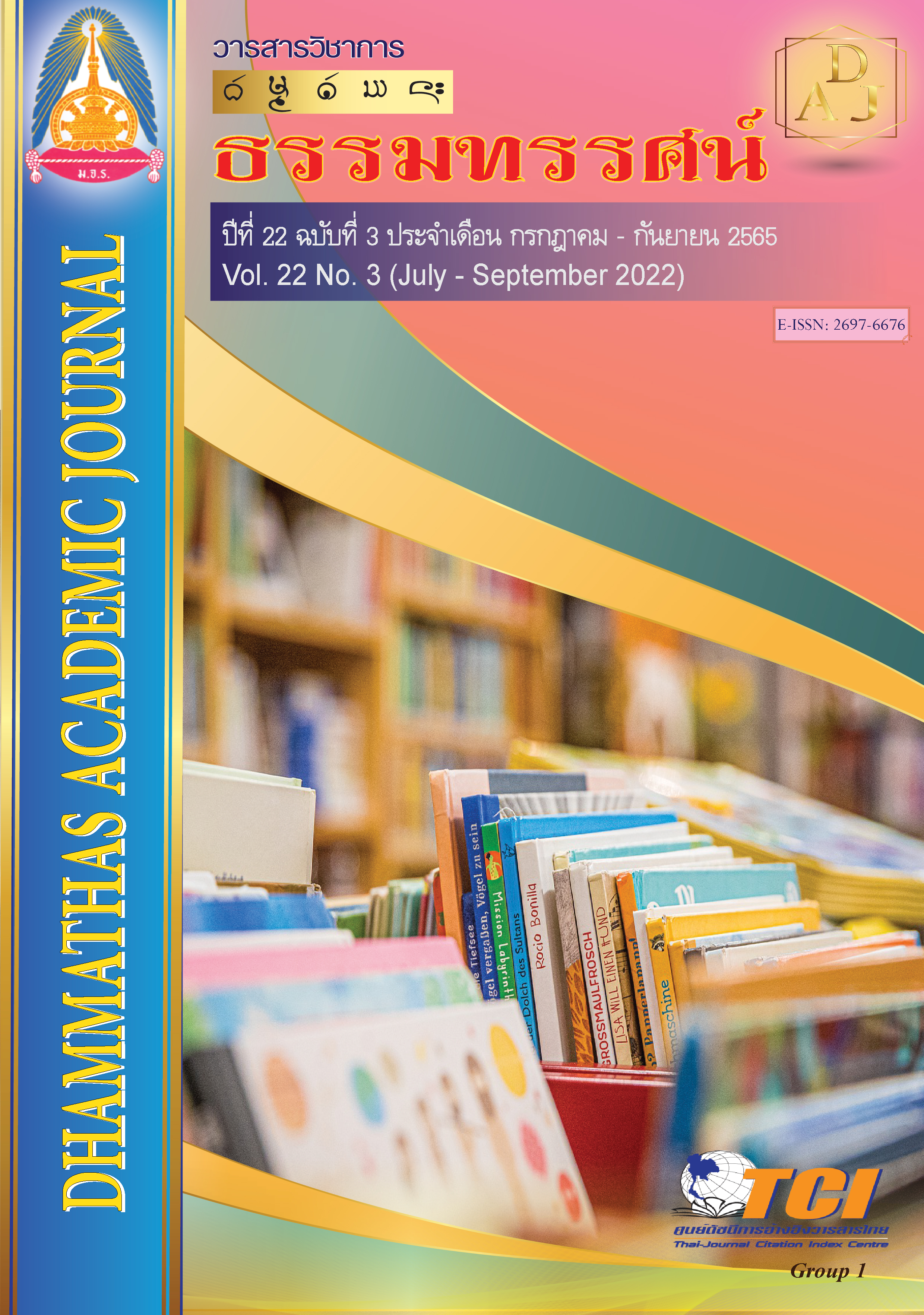Work Engagement and Social Partner Support for Smog Problem Solving and Preventing in Chiang Mai Province
Main Article Content
Abstract
This quantitative study was conducted to investing: 1) work engagement and social partner support for smog problem solving and preventing in Chiang Mai province and 2) factors having a relationship with work engagement and social partner support for smog problem solving and preventing in Chiang Mai province. The sample group consisted of 257 who were knowledgeable about smog and local administrative organization in Chiang Mai province. In the other words, they were representatives of civil society as well as public and private sectors obtained by purposive sampling. A set of questionnaires was used for data collection and analyzed by using multiple regression.
Results of the study revealed that:
1. The respondents had a high level of work engagement and social partner support for smog problem solving and preventing ( = 2.62). This was in terms of the following: 1) enthusiasm in smog problem solving and preventing (
= 2.69); 2) dedication to work on smog problem solving and preventing (
= 2.67); and 3) attention in smog problem solving and preventing, respectively.
2. Psychological factors had a relationship with work engagement and social partner of the respondents which included 4 variables: 1) motivation to join the social partner group; 2) attitude towards social partner operation; 3) knowledge about smog; and 4) learning experience 0.413, 0.233, 0.128, and 0.012, respectively.
Article Details

This work is licensed under a Creative Commons Attribution-NonCommercial-NoDerivatives 4.0 International License.
เพื่อให้เป็นไปตามกฎหมายลิขสิทธิ์ ผู้นิพนธ์ทุกท่านต้องลงลายมือชื่อในแบบฟอร์มใบมอบลิขสิทธิ์บทความ ให้แก่วารสารฯ พร้อมกับบทความต้นฉบับที่ได้แก้ไขครั้งสุดท้าย นอกจากนี้ ผู้นิพนธ์ทุกท่านต้องยืนยันว่าบทความ ต้นฉบับที่ส่งมาตีพิมพ์นั้น ได้ส่งมาตีพิมพ์เฉพาะในวารสาร วิชาการธรรม ทรรศน์ เพียงแห่งเดียวเท่านั้น หากมีการใช้ ภาพหรือตารางของผู้นิพนธ์อื่นที่ปรากฏในสิ่งตีพิมพ์อื่นมาแล้ว ผู้นิพนธ์ต้องขออนุญาตเจ้าของลิขสิทธิ์ก่อน พร้อมทั้ง แสดงหนังสือที่ได้รับการยินยอมต่อบรรณาธิการ ก่อนที่บทความจะได้รับการตีพิมพ์References
กรมอุทยานแห่งชาติ สัตว์ป่า และพันธุ์พืช. (2563). รายงานการเกิดไฟป่าและจุดความร้อนของแต่ละภาคในประเทศไทย. กรุงเทพฯ: กระทรวงทรัพยากรธรรมชาติและสิ่งแวดล้อม.
คณะรัฐศาสตร์และรัฐประศาสนศาสตร์ มหาวิทยาลัยเชียงใหม่. (2554). โครงการสร้างความเข้มแข็งแก่ชุมชนในการแก้ไขปัญหาวิกฤตหมอกควัน กิจกรรมศึกษาวิจัยทางเลือกในการแก้ไขปัญหาหมอกควัน และการพัฒนาเครือข่ายการเฝ้าระวังในพื้นที่แอ่งจังหวัดเชียงใหม่. (รายงานการวิจัย). เชียงใหม่: มหาวิทยาลัยเชียงใหม่
ฐานริณทร์ หาญเกียรติวงศ์ และคณะ. (2560). เครือข่ายการป้องกันปัญหาหมอกควันในเขตภาคเหนือตอนบน. วารสารดุษฎีบัณฑิตทางสังคมศาสตร์, 7(3), 41-53.
ณัฐกร วิทิตานนท์. (2555). แนวทางการแก้ปัญหาฝุ่นควันสำหรับจังหวัดเชียงใหม่ และโครงการวิจัยสร้างความเข้มแข็งแก่ชุมชน ในการแก้ปัญหาวิกฤต หมอกควัน คณะรัฐศาสตร์และรัฐประศาสนศาสตร์ มหาวิทยาลัยเชียงใหม่. เชียงใหม่: มหาวิทยาลัยเชียงใหม่.
ปัญจมาส ทวิชาตานนท์. (2555). ปัจจัยพหุระดับที่ส่งผลต่อความมั่นผูกพันในงานของเจ้าหน้าที่องค์การไม่แสวงหาผลกำไรที่ปฏิบัติงานด้านเอดส์. (วิทยานิพนธ์วิทยาศาสตรมหาบัณฑิต). กรุงเทพฯ: มหาวิทยาลัยศรีนครินทรวิโรฒ.
Schaufeli, W. B., Salanova, M., González-romá, V. & Bakker, A. B. (2002). The Measurement of Engagement and Burnout: A Two Sample Confirmatory Factor Analytic Approach. Journal of Happiness Studies, 3(1), 71-92.
Yamane, T. (1973). Statistics: An Introductory Analysis. (3rd Ed). New York: Harper and Row.

